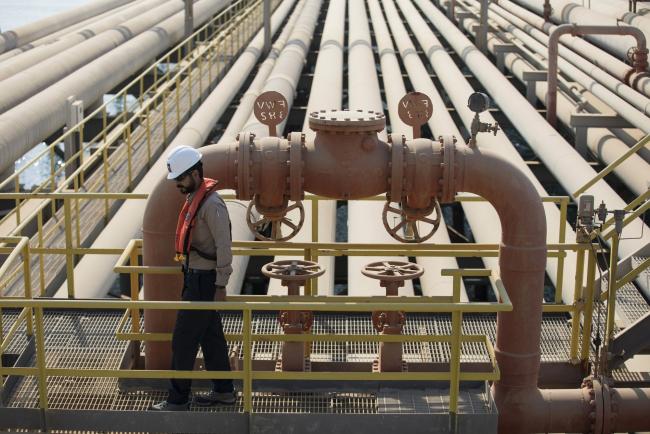(Bloomberg) -- Oil rebounded to close above $56 a barrel after a volatile session as traders look ahead to a key government tally of stockpiles in the world’s biggest economy.
Futures fell as much as 1.7% earlier Tuesday after U.S. Secretary of State Mike Pompeo told CNBC that Huawei Technologies Co. and other Chinese companies pose national security threats to the U.S. They gained before the close amid analyst forecasts that U.S. crude stockpiles last week fell for the first time in three weeks, a positive sign for the market.
“This is normal intraday volatility,” Raymond James analyst Pavel Molchanov said in an email. The fluctuations may have stemmed from a number of reasons, from forecasts about the Department of Energy’s weekly inventory report Wednesday to news flows on geopolitics to shifting of funds in and out of the futures market, he added.
Crude prices have been whipsawed this month amid conflicting indicators of whether the trade war will move toward resolution. Germany is preparing fiscal stimulus measures to head off the chances of a deep recession in Europe’s biggest economy, while more Federal Reserve rate cuts are expected to shore up American growth.
West Texas Intermediate crude for September delivery settled up 13 cents to $56.34 a barrel the New York Mercantile Exchange. The contract expired Tuesday. The more active October contract fell 1 cent to $56.13.
Brent for October settlement erased its earlier losses and settled up 29 cents to $60.03 on the ICE (NYSE:ICE) Futures Europe Exchange. The global benchmark crude traded at a premium of $3.90 a barrel to WTI.
Huawei Move
While the White House’s move Monday to delay sanctions on Huawei was seen as encouraging for the prospects of a trade deal between the world’s two largest economies. The U.S. added more than 40 affiliates of the Chinese company to a trade blacklist. Huawei said in a statement the reprieve doesn’t change the fact that it has been “treated unjustly.”
“The outcome of the next U.S.-China trade meeting will be the true litmus test for oil markets,” said Stephen Innes, managing partner at VM Markets Pte. in Singapore. “Oil traders don’t want to race too far ahead of the economic realities of the trade war narrative, so a bit of profit-taking is in order.”
The Federal Reserve will hold its annual symposium in Wyoming later in the week, where Chairman Jerome Powell’s remarks will be closely watched.
American crude stockpiles probably fell by 1.5 million barrels last week, according to the median estimate in a Bloomberg survey. The industry-funded American Petroleum Institute discloses its own tally later Tuesday.
